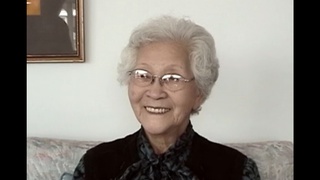Interviews
The Nikkei community that didn't support Former President Fujimori's election (Japanese)
(Japanese) President Fujimori... Well, when Mr. Fujimori announced his candidacy for president, I think it’s safe to say that all the Nikkei, well, most of them anyway, were not supporting him. The reason was the violence and looting against the Japanese before the war. Ever since, we haven’t been able to get over being plundered like that. It was such a big thing, the kind of trouble that incident caused. So, if Mr. Fujimori could not carry out the duties of president in a respectable way, then all the criticism would likely fall on the Nikkei. And if that happened, the Japanese would likely fall prey to looting again like they did before the war. As for the Nikkei, everyone was afraid that that would happen. And so, cautious like a bunch of politicians, the Nikkei preferred not to engage in terribly flashy or high-risk prospects, or so it was commonly thought at the time. But, of all things, they ended up announcing his candidacy for the president of the country, and for goodness sakes, managed to get him elected.
I heard that the Nikkei had been asking President Fujimori not to run for president although I’m not sure if that’s true or not. Still, rumors of that kind were floating around. The Nikkei were concerned or at least scared of Mr. Fujimori becoming president. In short, when he won the election, the community’s reaction was probably fear rather than joy.
Date: May 7, 2007
Location: California, US
Interviewer: Yoko Nishimura
Contributed by: Watase Media Arts Center, Japanese American National Museum
Explore More Videos

Ethnic diversity
(b.1926) Democratic politician and three-term Governor of Hawai'i

Being fair
(b.1926) Democratic politician and three-term Governor of Hawai'i

Role of Hawaii internationally
(b.1926) Democratic politician and three-term Governor of Hawai'i


Christian gatherings in homes
(1926 - 2012) Scholar and professor of anthropology. Leader in the establishment of ethnic studies as an academic discipline

Not bringing shame to family
(1926 - 2012) Scholar and professor of anthropology. Leader in the establishment of ethnic studies as an academic discipline

Relationship with S.I. Hayakawa
(1926 - 2012) Scholar and professor of anthropology. Leader in the establishment of ethnic studies as an academic discipline

Past ties to present situation in Middle East
(1926 - 2012) Scholar and professor of anthropology. Leader in the establishment of ethnic studies as an academic discipline

Role of the Japanese American National Museum
(1926 - 2012) Scholar and professor of anthropology. Leader in the establishment of ethnic studies as an academic discipline

Learning American cooking
(b.1909) Nisei from Washington. Incarcerated at Tule Lake and Minidoka during WWII. Resettled in Chicago after WWII

Getting citizenship back
(b.1909) Nisei from Washington. Incarcerated at Tule Lake and Minidoka during WWII. Resettled in Chicago after WWII

Japanese American community life
(b. 1939) Japanese American painter, printmaker & professor

Thoughts on redress
(b. 1923) Nisei from Washington. Resisted draft during WWII.

Her early life in Canada
(b.1912) Japanese Canadian Issei. Immigrated with husband to Canada in 1931

